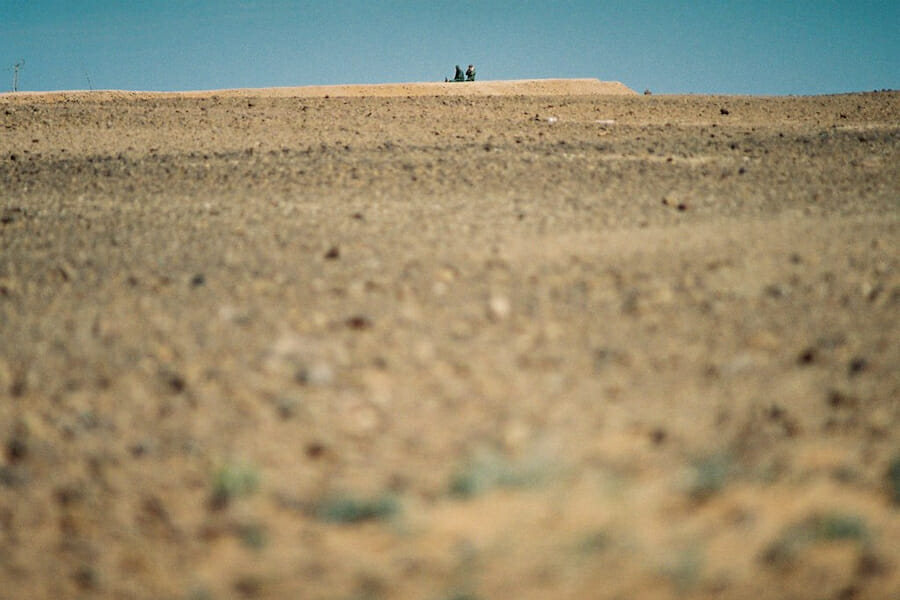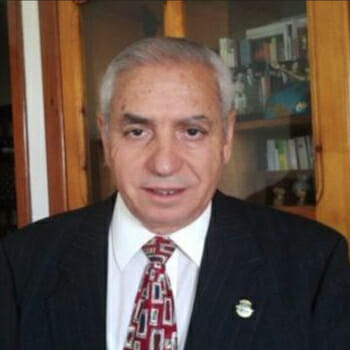
Morocco and Algeria: The Endless Cold War
In his speech on November 6, 2018, King Mohammed VI extended a hand to the Algerian government, with the hope of beginning a new chapter of good relations. Nevertheless, the Algerian government has not responded to this initiative of friendship. No answer is in many ways equivalent to saying unofficially, no way.
Sand War (September 25, 1963 – February 20, 1964)
During the long spell of French colonial presence in Algeria that lasted 130 years, France considered this country as a French department: Algérie française. During the independence war (November 1, 1954 – March 19, 1962,) when the French realized that they would ultimately leave Algeria, they turned to the Moroccans asking them to sit down to negotiate the restitution of territories that they had cut off from Morocco during the long colonial occupation period. King Mohammed V, in the name of the pan-Arab brotherhood utopia of the time, turned down the French initiative saying that undertaking something in this vein and at that time in history was equivalent to stabbing a sister country in the back and that after independence Algeria will, unilaterally, provide restitution relating to the territories in question. However, after independence in 1963, Algeria flatly refused to do this on the grounds that the territories in question are fully Algerian.
The abrupt refusal escalated tensions between the two countries and a war known as the Sand War ensued in September 1963 leading to the defeat of Algeria. Rather than hold the territory grabbed during the brief war, Hassan II, in an unexpected move, instructed the army to return home to avoid a long-term conflict with Algeria, but the harm was done and animosity towards Morocco began in the Algerian official circles.
Sahara Conflict
During the era of President Houari Boumedienne (1932-1978), in the official narrative, Morocco was seen as the enemy. The official policy among political leadership and army strategists stated clearly, in private, that Morocco is a great danger to the unity and survival of Algeria and, as such, must be challenged in all areas and at all times.
One first such challenge was the Sahara issue. While in 1974 Houari Boumédiène accepted the takeover of the territory by both Morocco and Mauritania, yet he adopted the Polisario Front in 1975 that called for full independence of the Spanish-colonized territory of the Sahara.
The tripartite agreement between Spain, the colonial power, Morocco and Mauritania, known as Madrid Accords of November 15, 1975, ceded the territory to these two latter countries.
To mar the Moroccan-Mauritanian takeover, Algeria armed the Polisario which launched attacks on both Morocco and Mauritania. The latter was unable to bear the brunt of the military onslaught and left the territory and ceded its part to Morocco in 1978. During the 1970s through the 1990s Algeria not only armed the Polisario but, also and most importantly, bought external support for it in the Organization of African Unity -OAU- and in the UN, thanks to the petrodollars it got from its oil revenues.
Morocco countered Polisario’s military efforts by building a defensive wall (the Moroccan Western Sahara Wall) an approximately 2,700 km (1,700 miles) long structure, mostly a sand wall, running through Western Sahara and the southwestern portion of Morocco) that stopped the latter’s encroachments in the territory under Moroccan control. On the other hand, Morocco put forth an autonomy plan for the territory (the Western Sahara Autonomy Proposal), an initiative, proposed in 2006 as a possible solution to the Western Sahara conflict. This plan has been receiving a lot of support from many nations of the world and is considered as a viable political solution to the conflict, for the time being.
Besides the Sahara conflict, the official Algerian enmity is expressed through the actual closing of territorial borders and the cessation of all possible economic activity. In 1994, Marrakech witnessed one of the first terrorist attacks in the country. The attack left two people dead and was carried out by three Algerian-French nationals. Morocco accused the Algerian intelligence services of planning the deadly shooting, a claim that worsened diplomatic relations between the two neighboring countries. Morocco, consequently, closed off its borders briefly but Algeria used the decision as an excuse to impose a permanent closure of the borders to stop Algerians visiting Morocco where they would spend a lot of money that would, ultimately, benefit and strengthen the Moroccan economy. It, also, prevented the Algerian people from witnessing the tremendous development realized by Morocco in various sectors of the economy in spite of the fact that the country does not have any oil.
The Algerian animosity toward Morocco is exclusively the work of the Algerian military that controls the country through docile political parties and an incapacitated president. Other than that, the Algerian people feel close to the Moroccan people because of shared religion, language and culture and they express this closeness every time they are given the opportunity.
The hate of Morocco and what it represents is ingrained in the Algerian military psyche, and only two possible developments can ultimately put an end to it. Algeria goes bankrupt economically and allows in the IMF and the World Bank to clean up its financial mess which will open economic borders and allow Moroccan companies to do businesses in Algeria. Or, the future possible cutting off subsidies will bring the population to the streets and a revolution could ensue that puts an end to military control and brings democracy to the country.
Barring these two developments, Algeria will continue to hold a grudge against Morocco and the Maghreb Union will be just wishful thinking if not a political joke, to say the least.

